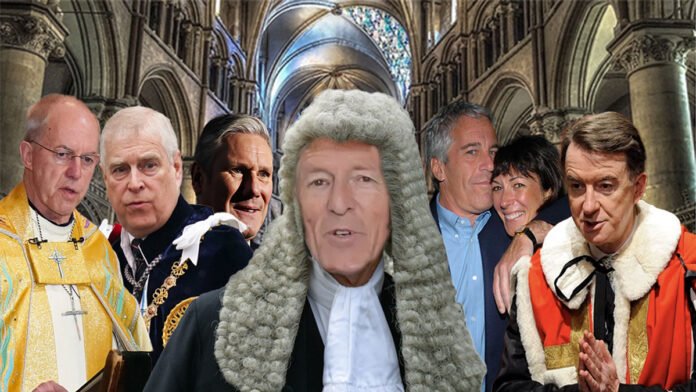From Westminster to Canterbury: The Rot in Britain’s Institutions of Power
When Sir Keir Starmer condemned Justin Welby’s handling of church abuse cases, declaring that victims had been “failed very, very badly,” he spoke from the highest position in the land. Yet his words carry a peculiar irony, not only echoing through the gilded chambers of Westminster where his own party’s peers sit comfortably alongside those who have dined with convicted sex traffickers but also haunting his own past.
For it was under Starmer’s watch as Director of Public Prosecutions that Jimmy Savile, perhaps Britain’s most notorious predator, continued to walk the corridors of power untouched, leaving a trail of institutional corruption and broken lives in his wake.
Now Justin Welby has fallen on his own sword, the blade forged from provable negligence. The Archbishop of Canterbury’s resignation marks the end of an era defined not by spiritual leadership but by moral cowardice. After 11 years as the Church of England’s spiritual head, his departure comes not with the dignity of retirement but weighted with the millstone of scandal – a testament to the destructive power of silence and complicity.
The House of Windsor knows all too well the price of such toxic associations. Prince Andrew’s fall from grace and subsequent exile from public life serves as a stark reminder of the consequences when power’s dalliance with predators finally surfaces in the harsh light of public scrutiny. Yet even here, the full truth remains tantalisingly out of reach. While Jeffrey Epstein’s taint has exposed a select few to judgment, his broader network of elite clientele remains safely entombed in sealed court vaults, protected by the very privilege and power they so heinously abused.
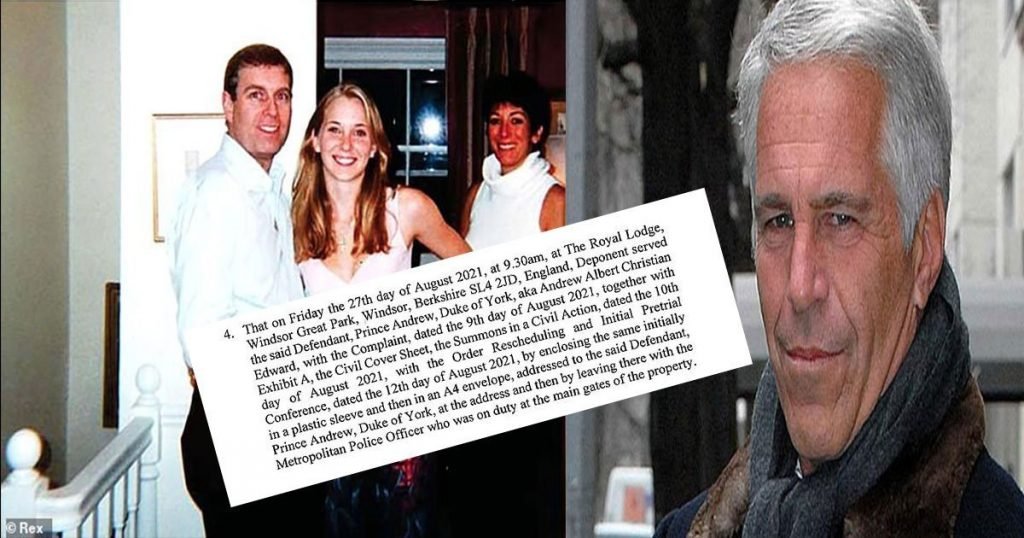
When asked by Emily Maitlis why he stayed in the house of a convicted sex offender in a pre-recorded interview with Emily Maitlis, understood to have been the result of six months of negotiations with the royal household, Andrew described it as a “convenient place to stay” and said: “I’ve gone through this in my mind so many times but at the end of the day with the benefit of all the hindsight that one can have it was definitely the wrong thing to do but at the time I felt it was the honourable and right thing to do.
“I admit fully my judgement was probably coloured by my tendency to be too honourable but that’s just the way it is.”
Those royals have different values, even different meanings to words or so it seems…
But this is not merely about one man’s fall from grace. It exposes a deeper rot in Britain’s institutions of power. While the Church of England faces its reckoning, the House of Lords remains a sanctuary for those whose moral compasses seem perpetually misaligned. Lord Mandelson, who maintained social connections with Epstein even after his conviction, still sits in judgment on the nation’s laws.
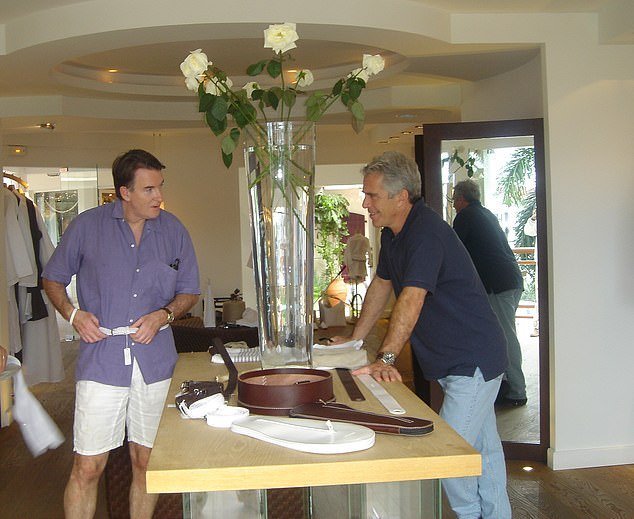
Mandelson continued to use his relationship to call for favours leveraging power and money from a serial paedophile, it was just business for these people.
John Smyth QC, is believed to have subjected up to as many as 130 boys and young men in the UK and Africa to traumatic physical, sexual and psychological abuse including beatings and lashings, according to the independent review.
Smyth was a British barrister and a former chairman of Christian charity Iwerne Trust, who died in South Africa in 2018.
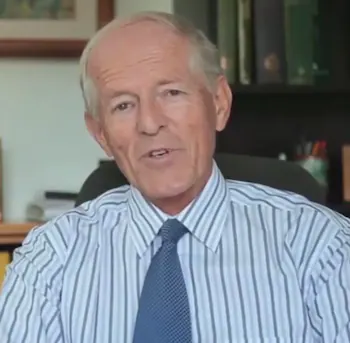
He was accused of attacking up to 30 boys at his Winchester home in the 1970s and 1980s. He then moved to Africa, where he abused an estimated 85 to 100 male children aged 13 to 17, the review added.
Smyth’s abuse was first reported to the trust in the early 1980s, and a report detailing his “horrific” beatings of teenage boys was presented to some Church leaders in 1982. But the findings were not given to the police.
The Makin review said his abuse in the UK re-emerged in 2012, when a church officer in Cambridgeshire received a letter “out of the blue” from a fellow survivor.
It was this event that eventually led to Mr Welby finding out about the abuse.
The review stated that five police forces were told of the abuse between 2013 and 2016. Church leaders however did not lodge a formal report.
It was not until 2017, after a Channel 4 documentary exposed Smyth to the public, that police launched a full investigation.
The Makin review laid bare the devastating truth: Welby knew about barrister John Smyth QC’s horrific abuse as early as 2013. Yet he, along with other church leaders, chose institutional preservation over justice. “I must take personal and institutional responsibility,” Welby finally admitted in 2024, words that should have come a decade earlier.
The survivors of Smyth’s abuse demanded Welby’s resignation, calling out the church’s “cover-up.” The Bishop of Newcastle echoed their calls, stating Welby’s departure would mark “a very clear indication that a line has been drawn.” But where is that line in the House of Lords?
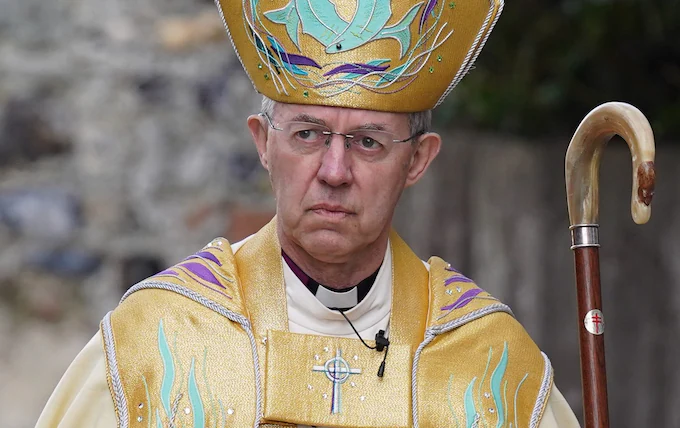
The Archbishop’s position – once powerful enough to crown monarchs – crumbled in the face of his dereliction of duty. Yet the Lords spiritual and temporal continue their comfortable existence, seemingly immune to similar standards of accountability.
The Church of England now stands at a crossroads. The vacancy at Canterbury offers a chance for genuine reform, but only if the institution confronts its culture of silence and prioritizes justice over reputation. The same challenge faces Parliament’s upper chamber, though few there seem eager to answer it.
As we witness this historic breach of trust in one of Britain’s oldest institutions, we must ask: how many more powerful figures sit in judgment while harbouring their own dark secrets? The measure of our institutions lies not in their ancient privileges but in their modern accountability.
The faithful deserve better than leaders who preach morality while practising silence in the face of evil. The public deserves better than legislators who condemn others while consorting with convicted criminals. Until both houses – Canterbury and Lords – embrace genuine reform, they risk becoming monuments to hypocrisy rather than pillars of justice.
For now, the throne of Canterbury stands empty – a symbol of accountability finally served. The benches of the Lords, however, remain full, and the vaults containing Epstein’s secrets stay sealed. Perhaps it’s time they too faced such scrutiny.
Before you go, I have a big favour to ask. Please consider making a small donation. Our year-end hosting contract is up next week, and it’s a significant expense. Thanks to our incredible readers, we’ve managed to stay online for the past 7 years. But, like many independent sites, we’re facing increased challenges and censorship, especially as a left-leaning platform. Any amount you can give would mean the world to us. Thank you!
Donate below, please.
Support Independent Journalism Today
Our unwavering dedication is to provide you with unbiased news, diverse perspectives, and insightful opinions. We're on a mission to ensure that those in positions of power are held accountable for their actions, but we can't do it alone. Labour Heartlands is primarily funded by me, Paul Knaggs, and by the generous contributions of readers like you. Your donations keep us going and help us uphold the principles of independent journalism. Join us in our quest for truth, transparency, and accountability – donate today and be a part of our mission!
Like everyone else, we're facing challenges, and we need your help to stay online and continue providing crucial journalism. Every contribution, no matter how small, goes a long way in helping us thrive. By becoming one of our donors, you become a vital part of our mission to uncover the truth and uphold the values of democracy.
While we maintain our independence from political affiliations, we stand united against corruption, injustice, and the erosion of free speech, truth, and democracy. We believe in the power of accurate information in a democracy, and we consider facts non-negotiable.
Your support, no matter the amount, can make a significant impact. Together, we can make a difference and continue our journey toward a more informed and just society.
Thank you for supporting Labour Heartlands
